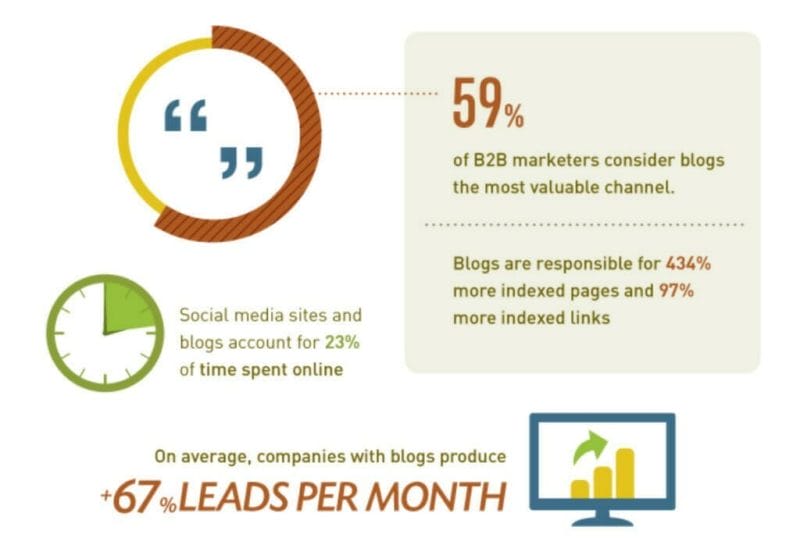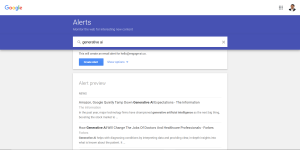The internet has changed the way we communicate. Now everyone is a content creator, and it’s vital to have an online presence. However, with so many people publishing content, does blogging help SEO in 2021?
Let’s break down the SEO industry and see how to get your content to rank on the first page of the Google search engine with this article.
What is SEO?
SEO stands for Search Engine Optimisation. The best SEO would be to target a key audience, find out what they search for and give them the information before any of their competitors does.
Ultimately, SEO is a way to get your content found on the internet and rank in search engine results pages (otherwise known as SERPs).
Three types of SEO
1) Technical SEO is the process of ensuring your website is not riddled with bugs or glitches. For this strategy to work, there are some factors to keep in mind:
- Mobile-friendliness of your website
- Website loading time
- Website security
- Free of broken links and 404 pages
2) Off-page SEO is a strategy used to build the reputation and authority of your website. This strategy includes acquiring links to other trusted websites or social media sharing. These factors are essential because they help search engines categorise your website as a trustworthy, reliable source.
3) On-page SEO is the process of optimising your website to rank higher in search results. Some of the most important on-page factors include:
- Title tags, meta descriptions and keywords
- Headings
- Keyword density of text content in an article or page (overusing keywords does more harm than good)
- adding images with alternative texts
- adding links to relevant internal and external sources
If you’re using WordPress as your content management system, you may download the Rank Math plugin to optimise your content easily.
In this article, we focus on website blogging, an on-page SEO strategy.
Does blogging help SEO in 2021?
With search engine optimisation, the goal is to have lots of indexed pages so that you’re more likely to show up on a Google search. And according to DemandMetric, blogging creates 434% more indexed pages.
Whether you’re a business or an aspiring entrepreneur, having a blog on your website can boost SEO, but it’s not an instant process.
However, it is a worthwhile investment because of the excellent benefits a blog brings to the table:
Get more traffic
If you have quality content, unique insights, and different perspectives for your readers, share them! People will flock to your website for the content, and you’ll get more eyeballs on your brand as well subsequently.
Higher SERP ranking
If you blog consistently with high-quality content over a long period, your site will rank higher for specific keywords or topics.
If you’re positioning yourself in a particular niche, try out different keyword variations to increase your chances of ranking on the Top 10 searches on Google.
Establish a reputation as an authority in your chosen niche
It’s not just about providing excellent services and products nowadays. Why do you think Hubspot is the authoritative body it is today? The answer is partly in their abundance of free, open resources.
Low financial investment
Of course, consistency is necessary to produce better results, but blogging is a low-cost but efficient strategy for getting your content on the internet.
Now that you know how much blogging can impact SEO, here are some tips if you’re just getting started.
Industry Tips to Maximise Blogging for SEO
Professional blog writers need to get content out consistently, so how do they avoid the pitfall of creative slowdown?
Keyword Research
Keyword Research is an integral part of getting your content up there. This research allows you to discover what people search for when they want information on a specific topic.
There are a lot of practical tools that help with keyword research. These keyword tools let you know which topic phrases or questions are easier to rank on Google.
Here are a few we’ve been using to this day because of how comprehensive and time-conserving they are:
- SEMrush
- KWFinder
- Ahref
Collecting a List of Ideas
You can devote a day each month to brainstorming ideas, so you don’t have to make it a daily effort.
Besides using keyword search tools, you can also look at what people ask about your niche online. For example, websites like Quora have many active users seeking updated information. You can use the tool QApop in order to find relevant questions quickly. It will also give you some keyword recommendations.
From there, you may curate a list of topics you want to write about on your blog. You can add new ideas to your list whenever you think of them. Best of all: You don’t have to worry about what to write every week as you already have a nice list in your arsenal.
Have a “Write For Us” section on your website
There are many keen guest bloggers out there looking for opportunities to get their work published. If you’re a business or an entrepreneur, it’s never too early to start cultivating relationships with writers and influencers in your industry.
Offering writers the opportunity to contribute their thoughts and opinions on your site will bring in qualified traffic. With these fresh perspectives, visitors are more likely to return if they find this section of content interesting, mint, or informative.
FAQs
To see steady growth in blog traffic, you’ll need to write at least 20 articles.
According to Hubspot research, it depends on the size of your blog and your current objective for having a blog.
For brand awareness:
Small blogs: 1-2 times a week
Large blogs: 3-4 times a week
For organic traffic:
Small blogs: 3-4 times a week
Large blogs: 4-5 times a week
Ideally, for SEO purposes, your article length should be around 2100-2400 words.
If you’re only starting to write blog posts recently, this content length can be challenging to accomplish since you’ll also need to account for the amount of research you’ll need to produce a relevant and insightful piece.
Therefore, you don’t have to feel like your content does not meet the SEO standards because it’s too short!
Quality is also accounted for SEO, so the content length isn’t necessarily everything.
Try a more pragmatic length to start, around 500-750 words, and slowly increase the depth of content once you’re comfortable with blog writing.
Final Thoughts
If you’re looking to rank among the Top 10 search results for your target keywords, blogging is a great way to get started. The more content you produce and publish on your site or blog, the higher chance that Google will pick up on it as relevant information for their users.
Which of these tips has been most helpful in helping you rank higher online?









